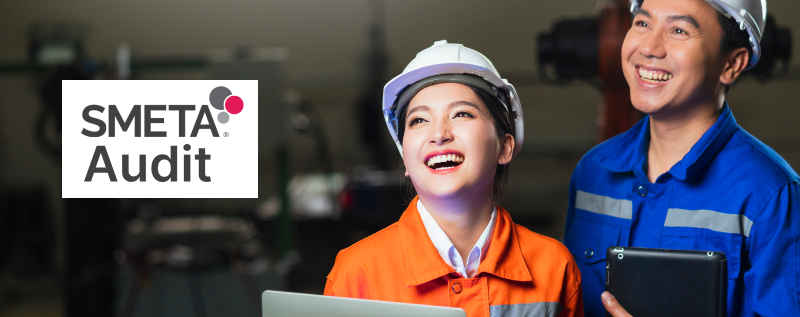In today’s globalized business landscape, maintaining ethical trade practices and ensuring responsible sourcing have become more crucial than ever. SMETA (Sedex Members Ethical Trade Audit) is a widely recognized auditing methodology that helps organizations assess and improve social and ethical standards throughout their supply chains. This comprehensive guide will delve into the concept of SMETA audits, their significance, and how they contribute to fostering transparency and sustainability in business operations.
What is SMETA Audit?
SMETA Audit, or Sedex Members Ethical Trade Audit, is a robust framework to assess and enhance ethical practices within global supply chains. It provides a standardized approach for evaluating compliance with labor standards, health and safety regulations, environmental impact, and business ethics. By conducting SMETA audits, organizations gain valuable insights into their supply chain practices and identify areas for improvement.
The Importance of SMETA Audit for Businesses
In today’s socially conscious marketplace, businesses face increasing pressure to demonstrate their commitment to ethical practices. Conducting SMETA audits offers several benefits to organizations. Firstly, it helps build trust and credibility among stakeholders, including customers, investors, and regulatory bodies. Businesses can enhance their reputation and gain a competitive edge by showcasing a proactive approach to responsible sourcing. SMETA audits also assist in identifying and addressing potential risks, ensuring compliance with legal requirements, and promoting a culture of continuous improvement.
What are the Key Components of SMETA Audit?
A SMETA audit encompasses various components to evaluate different aspects of ethical trade practices. These may include:
- Labor Standards: Assessing compliance with local and international labor laws, ensuring fair wages, working hours, and appropriate working conditions for employees.
- Health and Safety: Evaluating the implementation of health and safety policies, risk assessment procedures, and measures to protect workers from occupational hazards.
- Environmental Impact: Examining the organization’s environmental management practices, including resource usage, waste management, and efforts to reduce the carbon footprint.
- Business Ethics: Reviewing ethical business practices, such as anti-corruption policies, supply chain transparency, and fair competition.
By thoroughly examining these components, organizations can identify areas for improvement and take proactive measures to enhance their ethical trade practices.
Implementing SMETA Audit: Best Practices and Challenges

To ensure a successful SMETA audit, organizations should consider the following best practices:
- Preparing for the Audit: Thoroughly understand the audit requirements, engage internal stakeholders, gather relevant data, and establish clear communication channels with suppliers.
- Engaging Suppliers: Foster open dialogue with suppliers, encourage their participation in the audit process, and collaborate to address any identified issues.
- Continuous Improvement: Use audit findings to implement corrective actions and drive ongoing improvements in ethical trade practices.
- Training and Awareness: Provide training programs to educate employees and suppliers about ethical standards, their importance, and the organization’s commitment to responsible sourcing.
Despite the benefits, organizations may face challenges during the SMETA audit process. These can include limited supplier transparency, cultural differences, and the need to harmonize ethical standards across diverse supply chains. However, proactive planning, effective communication, and a commitment to continuous improvement can help overcome these challenges.
Conclusion: SMETA Audit: Enhancing Ethical Trade Practices in Your Supply Chain
In conclusion, SMETA audits ensure ethical trade practices and responsible sourcing in today’s global marketplace. By conducting comprehensive assessments of labor standards, health and safety, environmental impact, and business ethics, organizations can drive positive change, enhance their reputation, and contribute to a more sustainable future. By embracing SMETA audits and their principles, businesses demonstrate their commitment to ethical practices and build stakeholder trust. Stay informed, implement best practices, and continuously improve to create a responsible supply chain that benefits your organization and society.



Related Posts